Hong Kong armoured vehicles seizure: What we know
- Published
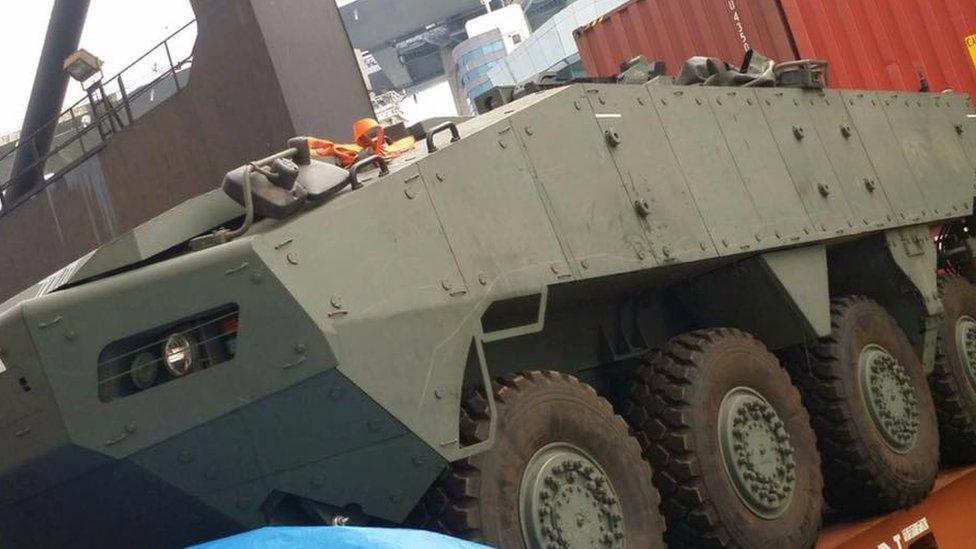
Singapore might have to deal with China's foreign ministry to get its vehicles back
The seizure of nine armoured vehicles by Hong Kong customs on Wednesday has raised many questions, and created a possible diplomatic spat between Singapore and China. Here's what we know so far.
Nine Terrex armoured vehicles, along with other equipment, were on a container ship from Taiwan - transiting through Hong Kong.
Customs officers at the Kwai Chung container terminal became suspicious when they saw the shapes of the vehicles under tarpaulin in an open-top container, a Hong Kong government source told the South China Morning Post newspaper, external.
Hong Kong's regulations stipulate that licenses are required for the transhipment of strategic commodities. Customs officers said they seized a total of 12 containers. Bomb disposal officers were called to the scene, but found no explosives.
Then on Thursday, Singapore's defence ministry confirmed the armoured vehicles being held were its property. The brief statement said the shipment had been "delayed" because of a request for inspections by Hong Kong customs.
It also said Singapore was providing "relevant assistance" and expected the shipment would return to the city-state "expeditiously".
Taiwan ties
Singapore released another statement, external on Friday, saying that the military had contracted private shipping company APL to handle the shipment. It said that there was no ammunition or sensitive equipment in the nine Terrex infantry carrier vehicles.
The military had sent a team to "address the security of the equipment", while the Singapore Consulate in Hong Kong was "assisting in this matter", the government said.
The Singapore military has been training in Taiwan since the 1970s. Taiwanese officials told the BBC that the cargo did not belong to them, but gave no further information.
Taiwan has been self-governing since 1949, when the Communist Party took control of the Chinese mainland. But Beijing has always considered the island to be part of Chinese territory, and seeks to isolate it diplomatically. Because of this, it does not look favourably upon military cooperation between Taiwan and any country.
And while Hong Kong is semi-autonomous, China is responsible for the territory's defence and foreign policy.
These complicated relationships mean this incident has the potential to cause an embarrassing diplomatic row.
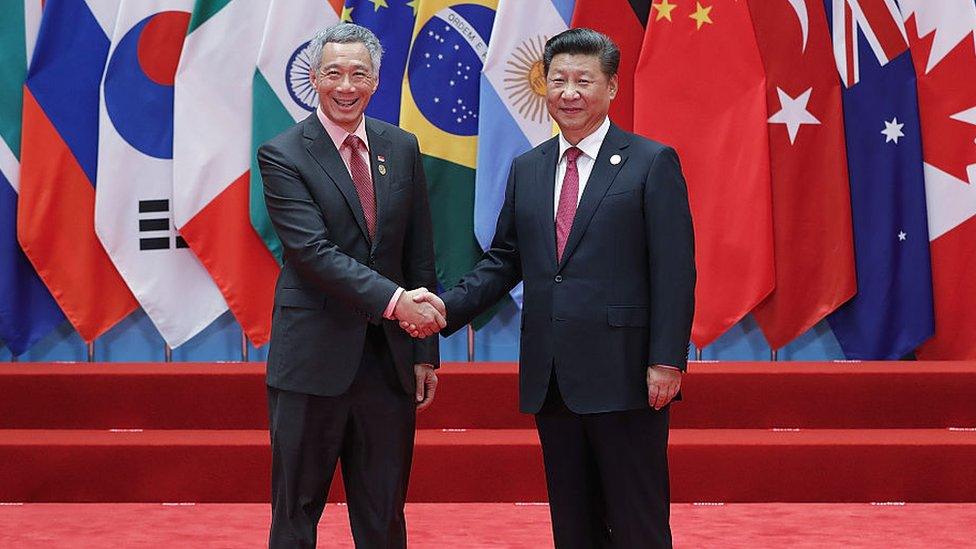
Territorial disputes in the South China Sea have put a strain on Sino-Singaporean relations.
In recent times, Sino-Singaporean relations have also become somewhat rocky.
In September, Singaporean ambassador to China Stanley Lo was engaged in a public spat with the Global Times, a nationalist, Communist Party-owned newspaper, over an international tribunal's rejection of China's expansive claims to most of the South China Sea.
Global Times' chief editor Hu Xijin said in an open letter that Singapore "sided with the Philippines and Vietnam" and "echoed" the stances of the United States and Japan over territorial disputes in the strategic maritime region.
Philippines wins South China Sea case
Asean avoids criticising China over sea
The seizure of armoured vehicles used for military training in Taiwan could mean new friction between China and Singapore, said Ian Chong, politics professor at the National University of Singapore.
"That the Singapore military trains in Taiwan is not openly discussed, but is a well-known fact," he told the BBC.
"The Chinese government could obviously use the incident as a way to further pressure Singapore to draw down its training in Taiwan.
"People in China who are currently wary, even upset with Singapore, have another reminder of differences. This could obviously encourage friction between the two countries."
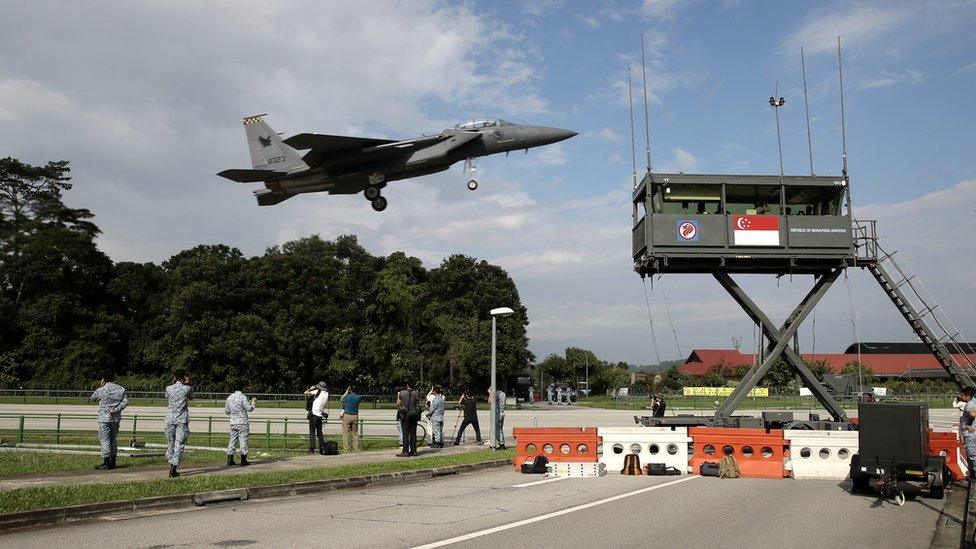
Singapore has extensive training and partnership arrangements with the United States
As China has grown increasingly assertive and influential in the region in recent years, Singapore has maintained close military ties with the United States. It has, however, also explored new military links with China.
"We have long supported America's presence in the region, which has underwritten regional peace and stability for decades, and enabled the Asia-Pacific to grow and prosper," wrote Singaporean Prime Minister Lee Hsien Loong in a letter congratulating Donald Trump on his victory in the US presidential election.
With Beijing in charge of Hong Kong's foreign affairs, it is likely that Singapore will have to deal with China's foreign ministry to ensure the return of the shipment.
The outcome of those discussions will be closely watched.
- Published25 July 2016
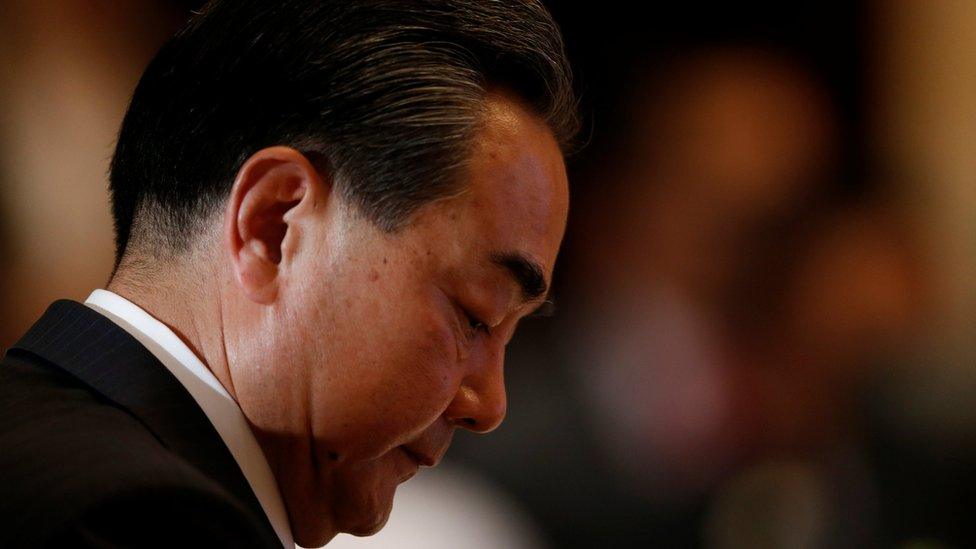
- Published12 July 2016
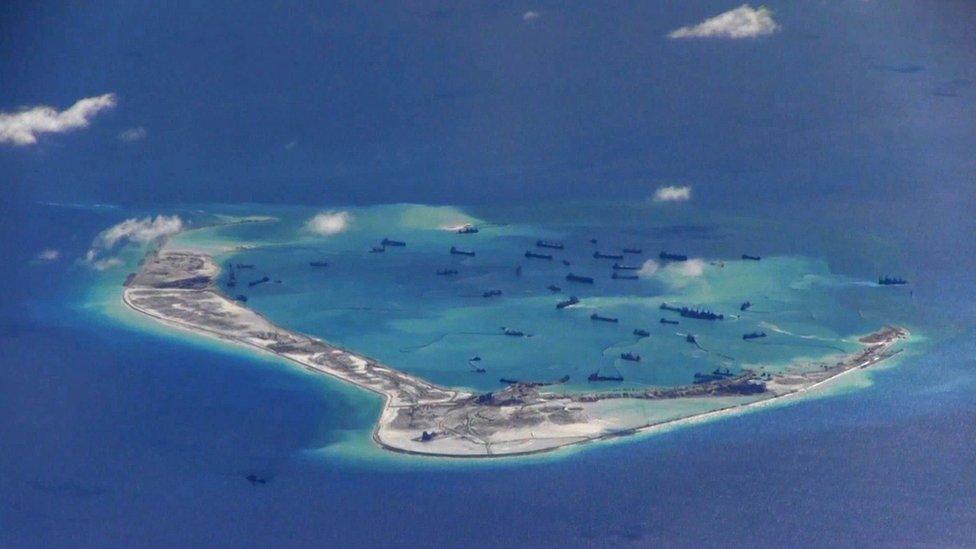
- Published4 November 2015
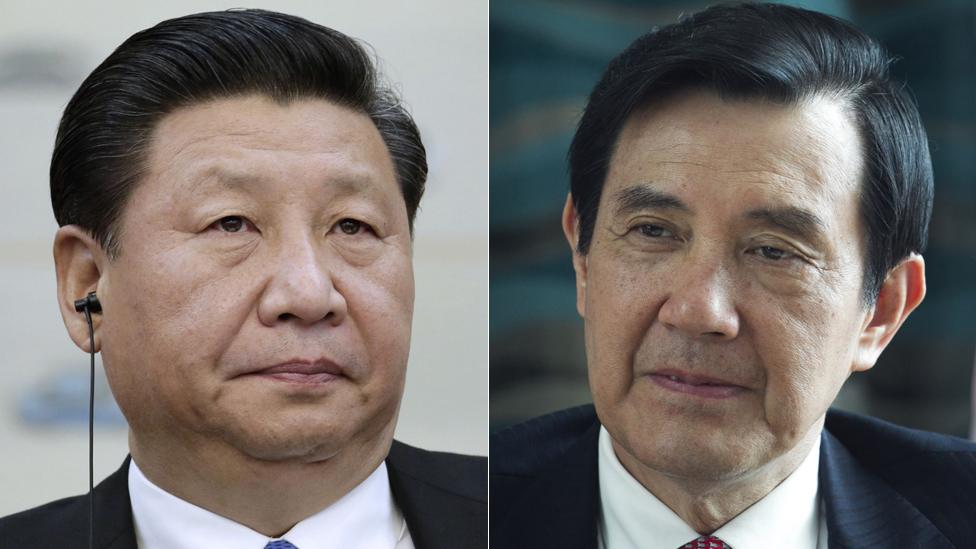
- Published13 November 2016
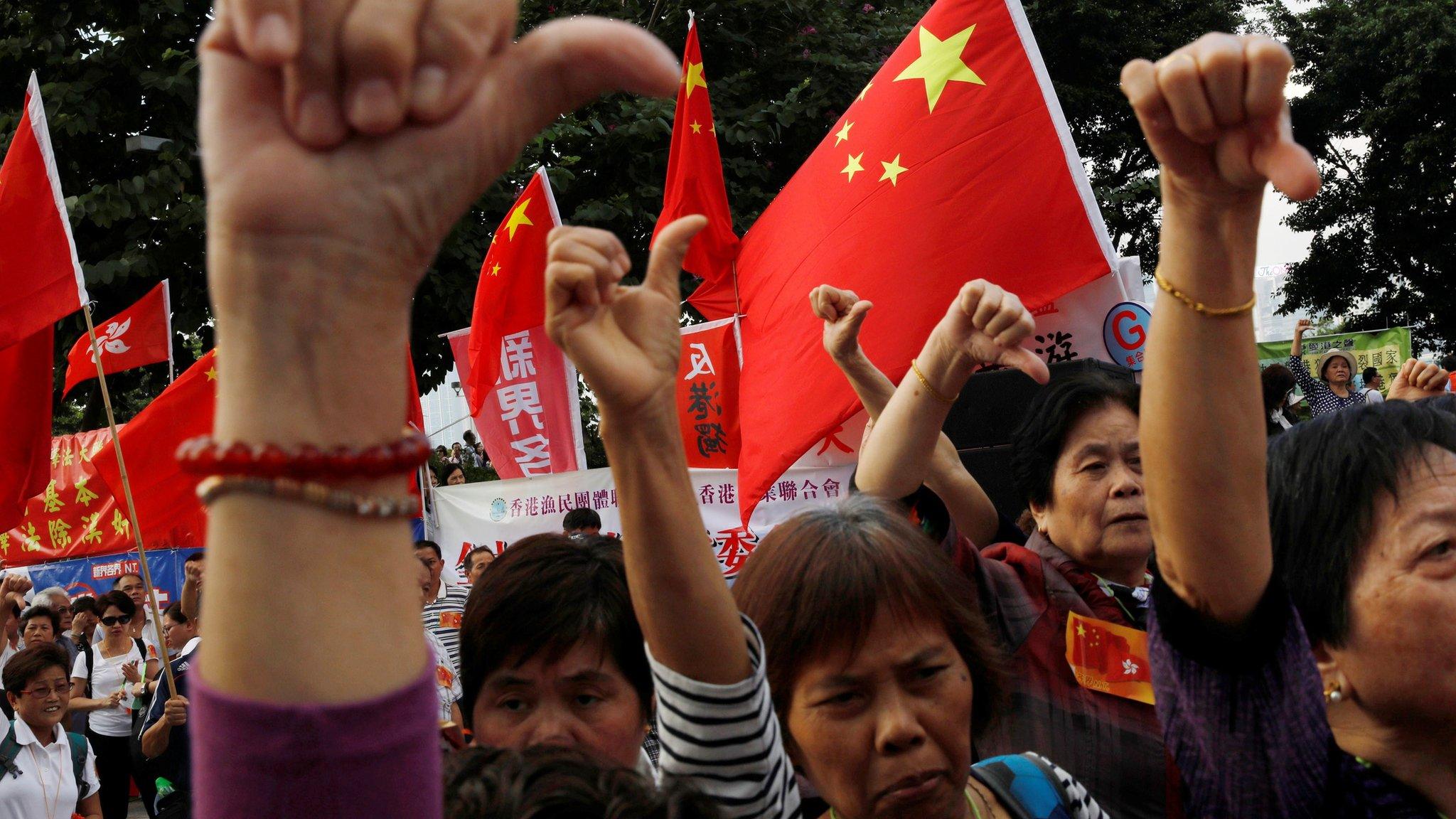
- Published16 December 2015
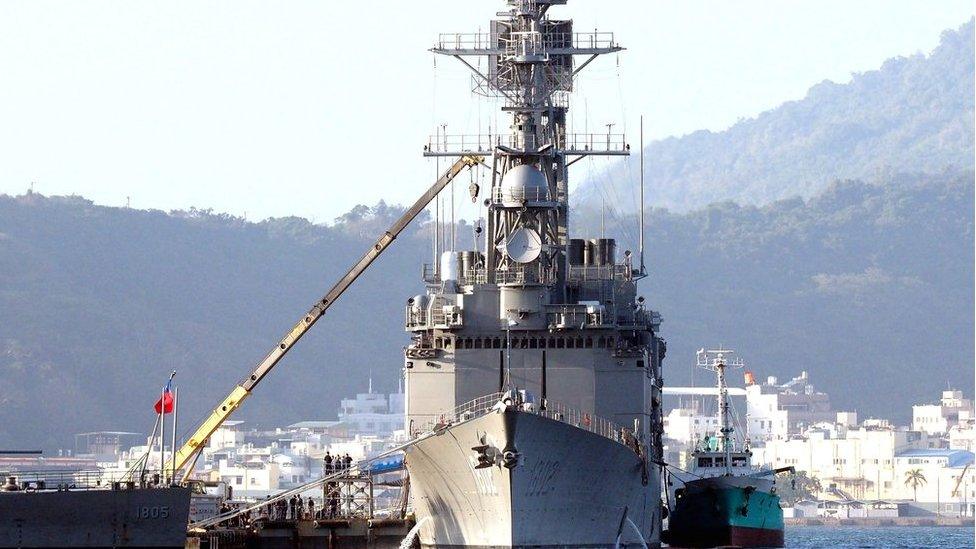
- Published7 November 2016